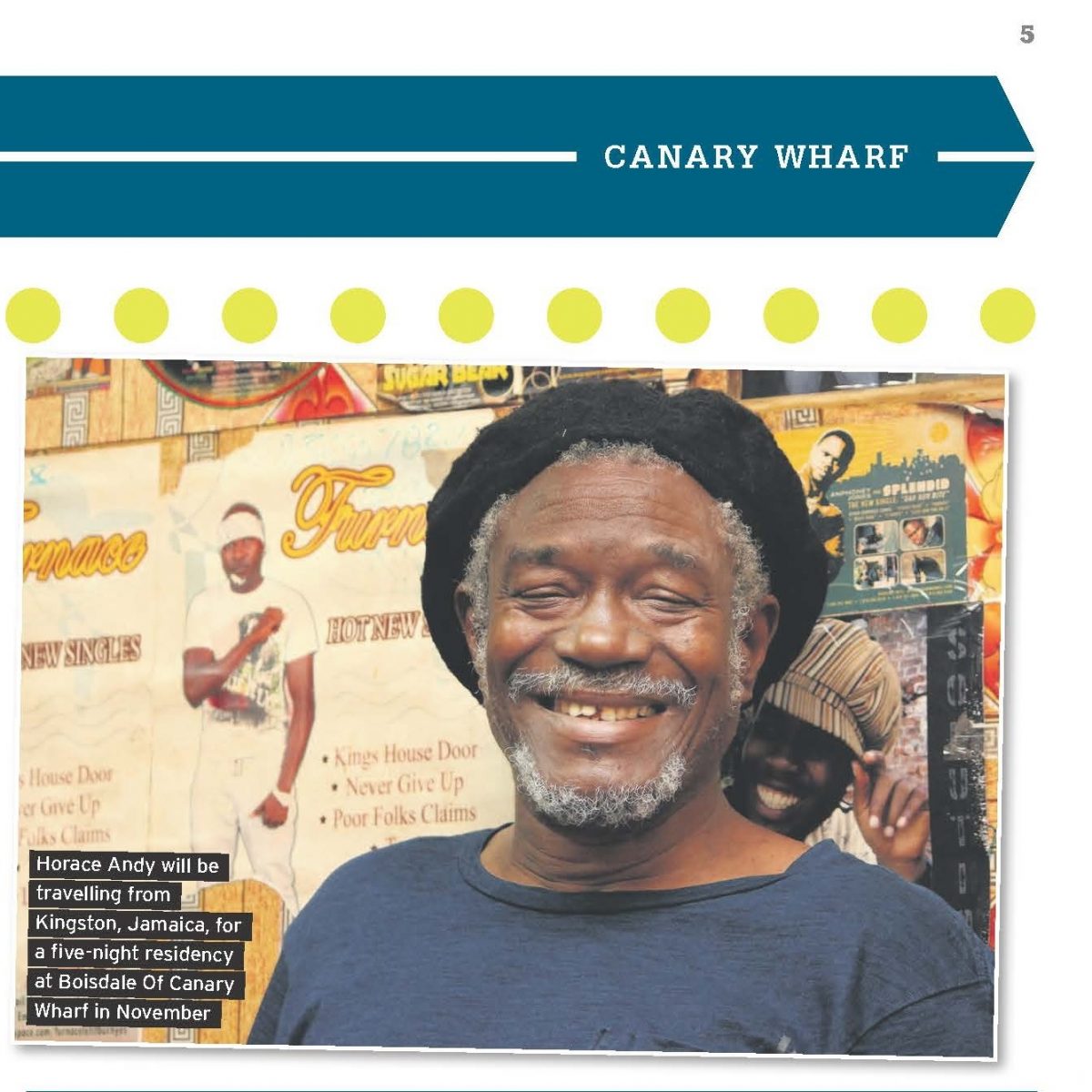Talking to roots reggae legend Horace Andy on the phone was no mean feat – and not just because of the London-Kingston time difference.
The background noise of his family home in Jamaica made for a chaotic chat punctuated by the shrieks of an unruly cockerel, seemingly crowing right into the receiver at all the key moments.
“Come again please,” Horace kept laughing, as I struggled to ask him about his extensive musical career – from his Kingston roots and his proto-dancehall 1980s tracks, to his near-20 years collaborating with Bristol trip-hop group Massive Attack – over the constant din.
We were speaking in advance of his five-night residency at Boisdale Of Canary Wharf (from November 12-16), which marks his first London shows since 2017, when – despite his nickname “Sleepy” – he performed an energetic Jazz Cafe set spanning his trademark, soulful hits from the early 1970s to today.
Fans of the Jamaican singer-songwriter are hoping for more of the same this winter. And Horace, a longtime stalwart and admirer of London’s music scene, is gearing up to deliver.
“London is a music city,” he said. “Once you come out of it the vibes change. I know Canary Wharf, I’ve been around there. I know people everywhere, love.”
It’s unsurprising, seeing as 67-year-old Horace Hinds has had a career that’s transported him from Jamaica to America to the UK and back.
He changed his surname to Andy when he signed to his first label, on his producer’s recommendation, to avoid comparisons with his musician cousin Justin Hinds.
Horace released his first single, This Is A Black Man’s Country, in 1967 with Studio One in Kingston, and grew to national fame there with his first major hit, Skylarking, in 1972. His album of the same name has gone down in history as a roots reggae classic, named by GQ in 2016 as one of 10 classic LPs from reggae’s golden era.
Horace then moved to the US, temporarily recording in New York City in 1982 with Jamaican expat producer Lloyd “Bullwackie” Barnes who ran the Wackies label in the Bronx.
The resulting album, a seminal six-track record called Dance Hall Style, not only influenced the dancehall reggae sound with its layered instrumentals but also reflected a shifting dynamic in Horace’s sound – from the sunny Caribbean island to the darker, wintry sonics of displacement in a New York borough.
But Horace’s most famous tracks, on this side of the Atlantic at least, are those he recorded with Bristol-based trip hop pioneers Massive Attack.
Ironically, the duo are often assumed to have been Horace’s patrons, but in reality when they approached the reggae singer in 1990, 3D and Daddy G were musical nobodies in comparison to the established artist they were majorly influenced by and contacting on the off chance they’d pique his interest.
“I just did one song with them, One Love,” Horace said, of his first single with the band on their debut album Blue Lines.
“But eventually it led up to better things, you know. I’m still touring with them. They can’t do it without me, love.”
Horace’s distinctively slow, sweet vibrato reverberates over atmospheric, bass-heavy tracks in every album Massive Attack has recorded – the only artist of their many collaborators to feature on every LP release.
He was living in Ladbroke Grove, West London, when they began recording together, and the ominous sounds of their most famous collaborations such as Angel (from Massive Attack’s 1998 album Mezzanine, and a rewritten version of Horace’s mid-70s track You Are My Angel) and Splitting The Atom (from the 2009 album Heligoland) demonstrate an extension of the more ethereal, haunting sound he developed in the Bronx.
Making music with Massive Attack both exposed Horace’s music to a younger generation of fans and linked him inextricably to the UK music scene.
“I first performed in London more than 30 years ago,” he said as the cockerel launched into another fit of crows.
“Damn this rooster.
“It’s so long ago I can’t even remember it, love. I lived in London a long time, over 15 years. I decided to go back to Jamaica because here is my foundation, here is my children.”
So having been away from the city close to his heart, what is Horace looking forward to doing when he comes back to the UK capital, his former home, the city of music?
“Honestly, love, I just sit down and watch sports,” he said. “Sports and news. I watch any kind of news and every sport, man. Football, badminton, everything.
“But not golf.”
Want to catch a glimpse of one of Jamaica’s long-time musical legends? Give up any hope of spotting him around town and secure a ticket for one of his Boisdale shows instead.
What should we expect from his sets?
“I never plan what music I will play,” he said. “I never can tell, until the day comes.”
Suffice to say, it’ll be a memorable night. boisdale.co.uk/music
